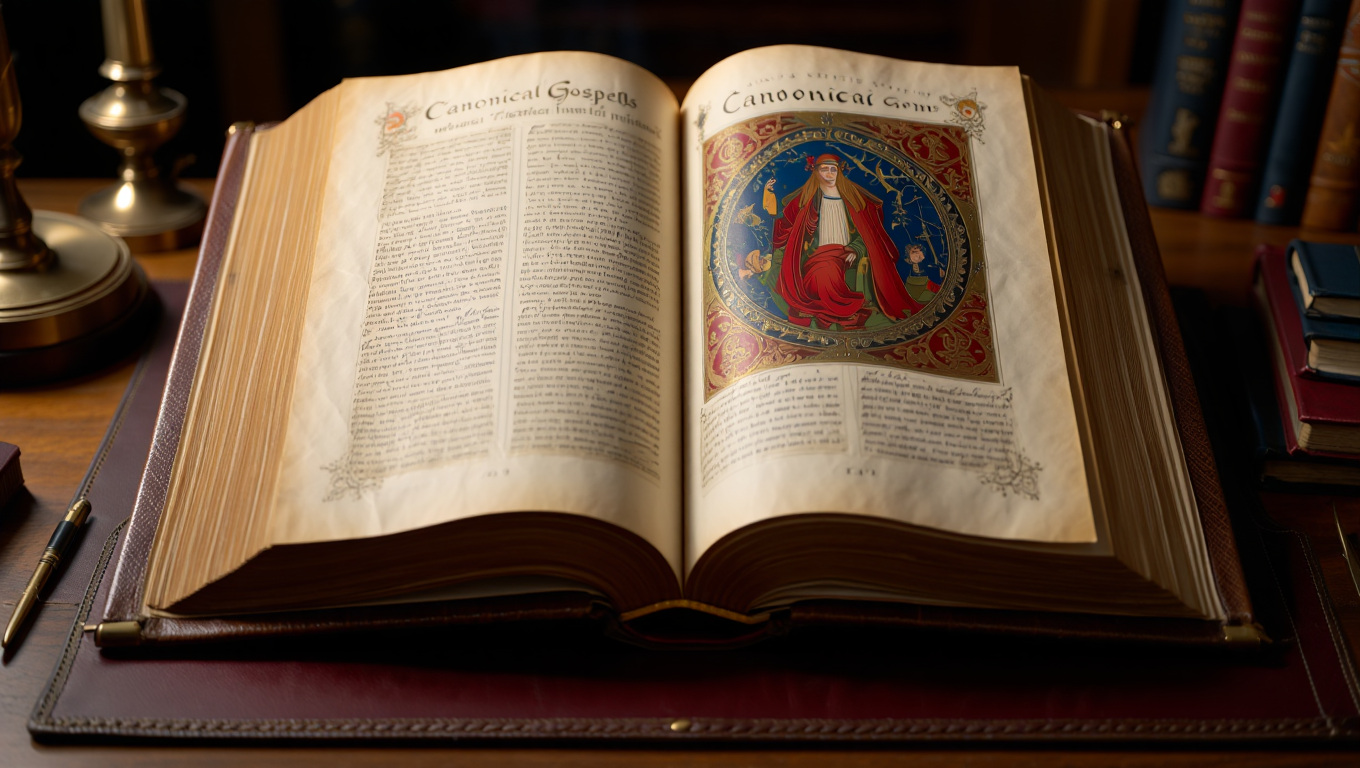Confucianism and Taoism are two distinct philosophical and religious traditions that originated in ancient China. Understanding the difference between the teachings of Confucian Analects and Taoist Texts can provide valuable insights into Eastern philosophy and spirituality. Let’s explore the variances in their beliefs, practices, and views in more detail.
Key Takeaways:
- Confucian Analects and Taoist Texts are two distinct philosophical and religious traditions in ancient China.
- Confucianism emphasizes moral values, societal harmony, and self-cultivation, while Taoism focuses on the natural flow of the Tao, spontaneity, and life balance.
- Confucian Analects are scriptures of Confucianism, while Taoist Texts are found in the Daozang collection, which includes the Tao Te Ching and Zhuang Zi.
- Confucianism was founded by Kong Qiu (Confucius) and includes practices like self-cultivation and paying homage to ancestors. Taoism was founded by Lao Tzu and emphasizes philosophical maturity and virtuous conduct.
- Confucianism is more focused on social order and ethics, while Taoism sees the Tao as the ultimate principle and does not believe in a personal deity.
Place of Origin and Scriptures
In understanding the differences between the Confucian Analects and Taoist Texts, it is important to consider their place of origin and the scriptures associated with each tradition.
Confucian Analects
The Confucian Analects originated in China and served as a foundational text for Confucianism. Written by Confucius and his disciples, it is a collection of teachings and sayings that emphasize moral values, societal harmony, and the importance of self-cultivation. In addition to the Analects, other Confucian scriptures include the I Ching, a book of divination, and the Doctrine of Mean, which explores the concept of finding balance in life.
Taoist Texts
Taoism, also originating in China, has its own set of scriptures found in the Daozang, a comprehensive collection of Taoist texts. The Daozang consists of 1400 texts organized into three sections. Among these texts are the Tao Te Ching, written by Lao Tzu, which serves as a central Taoist scripture. Another significant text is the Zhuang Zi, attributed to the philosopher Zhuang Zhou. Additionally, the I Ching is also included in the Daozang, highlighting its importance in both Confucian and Taoist traditions.
| Confucian Analects | Taoist Texts |
|---|---|
| Confucius and his disciples | Lao Tzu, Zhuang Zhou |
| Emphasizes moral values, societal harmony, and self-cultivation | Focuses on the concept of the Tao, naturalness, and balance in life |
| Includes the Analects, I Ching, and Doctrine of Mean | Includes the Tao Te Ching, Zhuang Zi, and I Ching |
Founders and Practices
In the realm of Confucian Analects and Taoist Texts, it is important to understand the individuals who laid the foundations of these philosophical traditions and the practices associated with them.
Confucian Analects: Founder and Practices
The founder of Confucianism is Kong Qiu, famously known as Confucius. Born in 551 BCE, Confucius dedicated his life to teaching and moral guidance. His disciples compiled his teachings and sayings into the Analects, which serve as the cornerstone of Confucian philosophy.
Confucian practices focus on self-cultivation and societal harmony. Followers of the Analects engage in rituals and ceremonies, such as visiting temples to pay homage to their ancestors, Confucius, and the deity Ti’en. Additionally, Confucianism emphasizes the importance of moral values, ethics, and filial piety in one’s daily life.
Taoist Texts: Founder and Practices
The founder of Taoism is Lao Tzu, a legendary figure believed to have lived during the 6th century BCE. Lao Tzu’s teachings are primarily found in the Tao Te Ching and the Zhuang Zi, which are considered essential texts of Taoist philosophy.
Taoist practices revolve around philosophical maturity, virtuous conduct, and harmonious living. Followers of Taoism seek to align themselves with the natural flow of the universe, known as the Tao. They engage in practices such as internal alchemy, meditation, and certain sexual practices to cultivate their inner energy and achieve balance and harmony in life.
| Confucian Analects | Taoist Texts |
|---|---|
| Founder: Kong Qiu (Confucius) | Founder: Lao Tzu |
| Practices: Rituals, moral values, ethics, filial piety | Practices: Philosophical maturity, virtuous conduct, harmonious living |
| Emphasis: Self-cultivation, societal harmony | Emphasis: Alignment with the Tao, naturalness |
Beliefs and View on Deity
Confucian Analects and Taoist Texts hold distinct beliefs and views on deity.
In Confucianism, the focus is more on social order, ethics, and moral values rather than strict religious beliefs. Confucianists generally follow Buddhism and perceive Confucianism as a belief system rather than a religion in itself. Confucianism emphasizes the importance of societal harmony, moral conduct, and self-cultivation. There is no specific belief in a personal God or deity within Confucian Analects.
Taoism, on the other hand, does not adhere to a personal God. It revolves around the concept of the Tao, meaning “The Way,” which is seen as the ultimate principle governing the universe. Taoism views the Tao as a mysterious force that flows through everything and advocates for naturalness, spontaneity, and the pursuit of balance in life. While Taoism acknowledges the existence of gods as higher life forms, it does not emphasize strict worship or belief in a singular deity.
| Confucian Analects | Taoist Texts |
|---|---|
| Emphasizes moral values and societal harmony | Focuses on the concept of the Tao and naturalness |
| Does not believe in a personal God | Views gods as higher life forms |
| Seen as a belief system rather than a religion | Does not focus on worship or belief in a singular deity |
The beliefs and views on deity in Confucian Analects and Taoist Texts reveal the different philosophical approaches of these two traditions. Confucianism places greater emphasis on social order, ethics, and moral conduct, while Taoism emphasizes the natural flow of the universe and the pursuit of balance. Both traditions have had a significant impact on Chinese culture and continue to be studied and practiced today.
Views on Life After Death and Human Nature
In Confucianism, the belief in life after death is not explicitly emphasized. The focus of Confucian teachings, as found in the Analects, is predominantly on the present life and the cultivation of moral values and societal harmony. Ancestor worship and the importance of heritage are central to Confucian practices, but these are not necessarily tied to a belief in an afterlife.
Taoism, on the other hand, holds a different perspective on life after death. According to Taoist beliefs, if an individual does not attain immortality during their lifetime, the Tao, the universal force, continues to manifest in various forms based on one’s conduct. Taoists believe that by aligning oneself with the natural flow of the Tao, humans can experience a type of immortality, not in a literal sense, but by becoming one with the eternal principles of the universe.
The concept of human nature also varies between Confucianism and Taoism.
Confucianism emphasizes the inherent goodness and potential for moral development in human nature. Confucius believed that individuals are born with the capacity for virtue and social harmony, but these qualities must be cultivated through education, self-discipline, and adherence to ethical principles. Confucian teachings encourage the ideal of the “gentleman” or the “superior person” who exemplifies moral excellence.
In contrast, Taoism holds a more complex view of human nature. Taoist philosophy sees human beings as microcosms of the universe, containing both yin and yang energies. Humans in their natural state are viewed as inherently good, but their harmony can be disrupted by societal conditioning and the pursuit of external desires. Taoism advocates for returning to one’s authentic nature, aligning with the Tao, and finding balance and harmony within oneself and the world.
| Confucian Analects | Taoist Texts |
|---|---|
| Emphasis on present life and moral values | Belief in the manifestation of the Tao after death |
| Focus on ancestor worship and heritage | View of humans as microcosms of the universe |
| Inherent goodness and moral potential in human nature | Importance of returning to one’s authentic nature |
Social Hierarchy and Gender Equality
In the Confucian Analects, social hierarchy plays a significant role in shaping Chinese society. Confucianism upholds the belief that individuals should respect and obey those who are superior to them in status. This hierarchical structure emphasizes the importance of maintaining order and stability within the community. The concept of filial piety, which is highly valued in Confucianism, underscores the obedience and respect that children should have towards their parents and the elderly.
On the other hand, in Taoist texts, such as the Tao Te Ching, there is a more egalitarian outlook. Taoism does not differentiate between men and women in terms of social hierarchy. Both genders are seen as equal manifestations of the Tao, the ultimate principle. Taoism promotes the idea that all individuals, regardless of gender, have the potential to cultivate wisdom and attain spiritual enlightenment.
Social Hierarchy in Confucian Analects
The social hierarchy in Confucian Analects is based on the five relationships, which are ruler and subject, father and son, husband and wife, elder brother and younger brother, and friend and friend. Each relationship has its own set of duties and responsibilities, with the superior figure expected to guide and provide for the subordinate figure. This hierarchical structure aims to create harmony and stability within society by maintaining order and respect for authority.
Gender Equality in Confucian Analects and Taoist Texts
While Confucianism emphasizes social hierarchy, it also acknowledges the importance of gender roles. In Confucian Analects, women are considered socially inferior to men, and their primary role is to support and serve their husbands and families. However, it is important to note that there are also examples of influential women in Confucian history, such as Empress Wu Zetian of the Tang Dynasty.
In contrast, Taoism rejects the notion of strict gender roles and recognizes the inherent equality between men and women. Both genders are seen as integral parts of the Tao, and both have the potential to attain spiritual enlightenment. Taoist texts emphasize the importance of balance and harmony between the masculine and feminine energies within the universe.
Overall, while Confucianism emphasizes social hierarchy and has specific roles for men and women, Taoism promotes gender equality and recognizes the equal potential of both genders to attain spiritual enlightenment.

Conclusion
In conclusion, the comparative study of the Confucian Analects and Taoist Texts reveals both similarities and contrasts between these two ancient Chinese philosophical traditions. While Confucianism focuses on principles of societal harmony, moral values, and social order, Taoism emphasizes the naturalness, balance, and the pursuit of the Tao.
The Confucian Analects, written by Confucius and his disciples, highlight the importance of self-cultivation and the cultivation of virtuous qualities to achieve personal and societal improvement. On the other hand, the Taoist texts, such as the Tao Te Ching and Zhuang Zi, emphasize the concept of the Tao as a mystical force that flows through the universe, advocating for spontaneity and the pursuit of balance in life.
Despite these differences, both philosophies have greatly influenced Chinese thought, culture, and society for centuries. The Confucian Analects and Taoist Texts have shaped the understanding of ethics, spirituality, and the meaning of life in the Chinese context. Their teachings continue to be studied, practiced, and respected to this day.
In a broader sense, the comparative study of Confucian Analects and Taoist Texts not only provides insights into Eastern philosophy and spirituality but also highlights the immense richness and diversity of human thought and belief systems across different cultures and traditions.
FAQ
What are the main differences between Confucian Analects and Taoist Texts?
Confucian Analects focus on moral values and societal harmony, while Taoist Texts emphasize naturalness and the pursuit of balance in life.
Where did Confucian Analects and Taoist Texts originate and what are their scriptures?
Both Confucian Analects and Taoist Texts originated in China. Confucianism’s scriptures include the Analects of Confucius, I Ching, and Doctrine of Mean. Taoism’s scriptures can be found in the Daozang, which includes texts such as the Tao Te Ching, Zhuang Zi, and I Ching.
Who were the founders of Confucian Analects and Taoist Texts, and what are their practices?
Confucian Analects were founded by Kong Qiu, also known as Confucius. Confucian practices include paying homage to ancestors, engaging in self-cultivation through practices like ‘Jing zuo,’ and visiting temples. Taoist Texts were founded by Lao Tzu, and Taoist practices focus on philosophical maturity, virtuous conduct, internal alchemy, and certain sexual practices.
What are the beliefs and views on deity in Confucian Analects and Taoist Texts?
Confucianism does not believe in a personal God and sees Confucianism as a belief system rather than a religion. Taoism views the Tao, meaning “The Way,” as the ultimate principle, and gods are seen as higher life forms.
What are the views on life after death and human nature in Confucian Analects and Taoist Texts?
Confucianism does not have an explicit belief in life after death, while Taoism believes that if immortality is not attained during life, the Tao will continue to manifest in different forms based on one’s conduct. Confucianism upholds a social hierarchy and views women as socially inferior to men, while Taoism sees no distinction between men and women and rejects strict gender roles.
What can be concluded from the comparative study of Confucian Analects and Taoist Texts?
The comparative study of Confucian Analects and Taoist Texts reveals their similarities and contrasts, providing valuable insights into Eastern philosophy and spirituality. Both traditions have influenced Chinese thought for centuries and continue to be practiced and studied today.
 Skip to main content
Skip to main content


